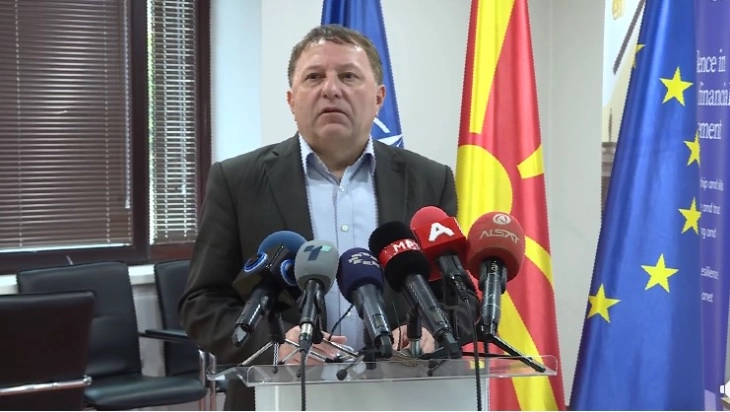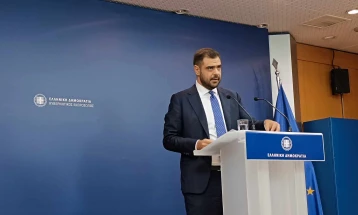Irresponsible citizens at fault for current air pollution, chief environmental inspector says
- No major factories are polluting the air at the moment, with USJE cement plant working with 50 percent capacity and Makstil not working at all; the current air pollution is a result of citizens burning all kinds of waste for heating as well as the construction sector, State Environmental Inspectorate director Sreten Stojkovski told a Friday press conference.
- Post By Magdalena Reed
- 21:57, 5 January, 2024

Skopje, 5 January 2024 (MIA) — No major factories are polluting the air at the moment, with USJE cement plant working with 50 percent capacity and Makstil not working at all; the current air pollution is a result of citizens burning all kinds of waste for heating as well as the construction sector, State Environmental Inspectorate director Sreten Stojkovski told a Friday press conference.
"We cannot go into houses without a warrant to see who's burning what, but if we find waste in yards that will be burned, we, as well as the authorized environmental and state inspectors, have jurisdiction to take action," Stojovski told reporters.
He said Makstil had been closed since Dec. 31, and USJE was operating at 50 percent capacity, yet Skopje was polluted on Jan. 1, 2, 3 and 4. Measurements made by accredited laboratories showed that these two large former polluters were now polluting within the allowed limits.
"Let's all work together to protect the environment. The law on urban greenery says that every construction plot has to have 20 percent greenery. There is no data on whether authorized municipal inspectors, i.e., mayors publish the number of the building permits they issue and how they comply with the law on urban greenery. Large retail complexes are being built without a square meter of greenery. Something must change. An amendment needs to be made to the law on urban greenery so that each plot must have at least 50 percent greenery to absorb pollutants and dust. There is a lot of work to be done in this area, we all must become more conscious because we are breathing polluted air," Stojkovski stressed.
He said until last year, the public transport enterprise JSP used gas for heating and now they switched to mazut, which they burned in two places, Avtokomanda and Gjorche Petrov Municipality. A large number of health facilities continued to use it as well, he said.
"Tests are being done. The time-dependent analysis are within the allowable range. Some have exceeded the use of nitrogen oxide. Wherever there is excess of dust, we make them clean the blast furnaces and measure again," Stojkovski noted.
He said places that can operate on gas were recommended to do so.
"Heating plants will continue to operate on gas. Last year we made the Paper Mill Kochani factory work with it secondary option, gas. Although the citizens in Kochani were satisfied with the lack of air pollution, we were informed that the factory would be closing down on Jan. 2, 2024. Citizens in Kochani are satisfied. There is no pollution, but the factory left 120 to 130 people without a job," Stojkovski explained.
The State Environmental Inspectorate, he added, was not able to take samples on its own, which is why they hired an accredited laboratory through a public procurement contract.
As of last year, the inspectorate had initiated court proceedings for several cases on air pollution violations and other types of pollution in the amount of almost EUR 400,000, he said.
"Only two or three companies have responded to the government's recommendations," he said, adding that if inspectors were to "force them to reduce capacities or stop, there could be financial repercussions to the budget of the State Environmental Inspectorate."
"So we have to be careful," he continued. "If the government decides on a ban, then we act. This is how we enforce those recommendations to legal entities and it turns out that some of them are socially responsible and reduce their capacities or stop their use," Stojkovski said. ssh/mr







